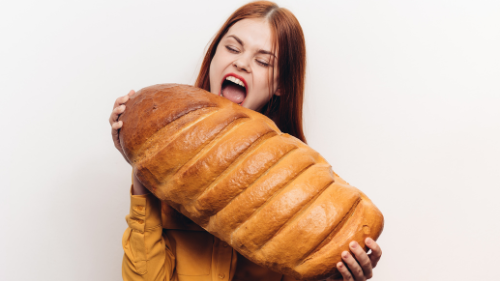Emotional Hunger: When the Emptiness Can’t Be Filled with Food
Eating is a basic need. But sometimes, what we seek in food isn’t
nutrition—it’s comfort. There are moments when your body isn’t hungry, but your
soul is. You open the fridge looking for something to calm anxiety, boredom,
sadness, or loneliness. And even after eating, the emptiness remains. Because
it wasn’t physical hunger—it was emotional hunger.
This kind of hunger isn’t felt in the stomach but in the chest. It
doesn’t follow schedules or biological needs. It shows up suddenly—after an
argument, a rejection, a stressful day, or a sense of existential void. It’s
urgent, impulsive, and often leads you to eat more than you need… followed by
guilt, frustration, or emotional disconnection.
Eating to Soothe What You Can’t Name
Emotional hunger is a form of self-regulation. Food acts as an
anesthetic: it brings quick relief, but doesn’t solve the root issue. And when
this becomes a pattern, it creates a vicious cycle—eating to avoid feeling,
followed by guilt and shame, leading to more emotional disconnect… and more
eating.
This isn’t about lack of willpower. It’s about unresolved emotional
wounds. Many people learned early in life that food was comfort: they were
given sweets when they cried, or rewarded with food instead of being
emotionally validated. So a bond was formed—food calms the body, tries to
soothe the sadness, loneliness, or anxiety.
And we live in a culture that teaches us not to manage emotions, but
to suppress them: “Don’t cry,” “Be strong,” “Cheer up.”
So when intense emotions arise, we don’t know what to do with them. And one of
the fastest (and socially accepted) escapes is food.
Learn to Nourish Yourself Beyond the Plate
Healing emotional hunger doesn’t mean cutting out what you love or
living in restriction. It means learning to recognize what you’re really
feeling when that urge appears. Ask yourself: “Am
I truly hungry, or am I trying to soothe something?” “What do I need right now that has nothing to
do with food?”
In therapy, we help you identify emotional triggers, build healthier
self-regulation tools, and learn to distinguish between real and emotional
hunger. Because you deserve a relationship with food free from guilt— and a
relationship with yourself that doesn’t depend on anesthesia.
If you eat to avoid feeling, if you carry a void you can’t seem to
fill, or if your body is bearing the weight of what your soul doesn’t know how
to ask for, you’re not alone. And you can learn to feed yourself from a different
place.



